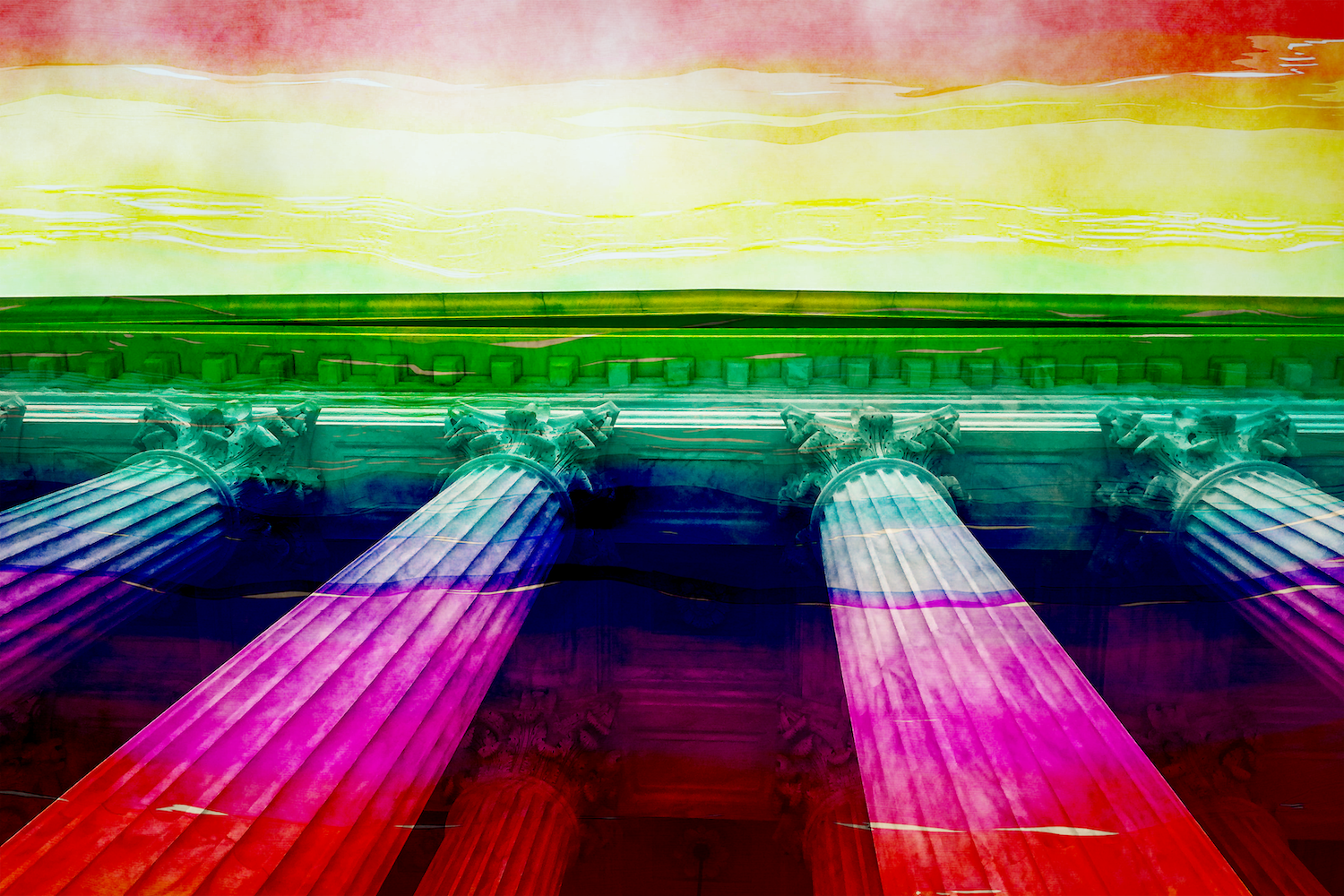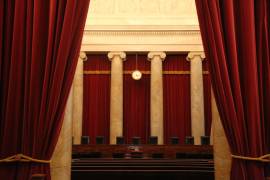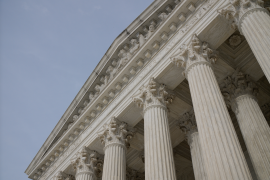With the death of Justice Ruth Bader Ginsburg, the country lost a civil rights trailblazer of herstoric proportions. As we mourn her, it is also imperative that we recognize the impact that Justice Ginsburg’s lifelong advocacy had on advancing LGBTQ equality and how crucial it is that her seat be filled with an impartial arbiter of justice, not another conservative idealogue who could undermine or roll back hard-fought progress for LGBTQ rights.
Justice Ginsburg’s imprint on the lives of LGBTQ Americans and everyone living with HIV started with the first major Supreme Court victory for LGBTQ people, Romer v. Evans, the 1996 case where the Court struck down Amendment 2 to the Colorado Constitution, that prevented any city, town, or county in the state from enacting nondiscrimination protections for lesbians, gay men, and bisexuals. In the 2003 landmark case Lawrence v. Texas — litigated by Lambda Legal — she joined the Court’s majority in declaring sodomy laws unconstitutional, a decision which would become the cornerstone for many future civil rights cases. During this last term, while simultaneously battling cancer, she joined Bostock v. Clayton, a decision holding that Title VII’s protections against sex discrimination in employment include discrimination on the basis of sexual orientation and gender identity.
In the fight for marriage equality, Justice Ginsburg supported the historic United States v. Windsor decision in 2013, which struck down a key provision of the federal so-called Defense of Marriage Act. During oral arguments, she aptly described the importance of marriage equality, saying that maintaining a legal distinction between different-sex and same-sex unions undermined the legitimacy of same-sex relationships, treating them as “skim milk marriages” without full legal respect and protections. Her allyship continued off the bench, when after this decision, she officiated at the first marriage of a same-sex couple to happen at the Supreme Court. The Court’s ruling in Obergefell v. Hodges soon followed, which she also joined and which made marriage equality the law of the land.
Justice Ginsburg’s influence in reproductive rights and health cases was immense, especially in abortion rights cases. Those cases always have been tightly woven doctrinally with LGBTQ rights cases; arguing equality, dignity, autonomy and personal privacy are essential constitutionally protected rights for all of us, and too often at risk from the same reactionary forces.
In 1996, she wrote for a resounding 7-1 Court majority in United States v. Virginia, to strike down the Virginia Military Institute’s (“VMI”) male-only admissions policy because it violated the Equal Protection Clause. Her opinion broke ground in rejecting the gender stereotyping the state relied on to defend its policy and also in upping the standard of review to require “an exceedingly persuasive justification” for gender-based classifications, rather than merely "an important governmental interest.” Both the rejection of stereotypes and the stronger legal test are key for cases challenging governmental discrimination against LGBTQ people because it often involves stereotypes and because both sexual orientation and gender identity always are inseparable from sex or gender, a fact the Court embraced this past June in Bostock v. Clayton County.
Justice Ginsburg was also justly celebrated for her legendary dissents. In Masterpiece Cakeshop v. Colorado Civil Rights Commission, the 2018 case where Court ruled in favor of a baker who refused to make a wedding cake for a same-sex couple because he alleged it violated his religious beliefs, Justice Ginsburg’s dissent cut directly to the heart of the matter. While the majority decided the case narrowly, side-stepping the central issues it raised, Justice Ginsburg wrote that what really mattered was that the baker “would not provide a good or service to a same-sex couple that he would provide to a heterosexual couple.”
Justice Ginsburg’s early work launched modern gender equality jurisprudence. One of the six cases she argued before the Court, Reed v. Reed, marked the dawning of a new era, as a unanimous Supreme Court declared sex discrimination unconstitutional, setting the stage for later cases, such as VMI. Her effectiveness as a young litigator made possible her gender — and LGBTQ — equality decisions as a justice.
With the Supreme Court poised to review a panoply of cases with potential life-changing implications for the LGBTQ community, we sit at a historic crossroads for the future of democracy and justice. Whoever fills Justice Ginsburg’s seat will have a monumental impact on all areas of civil rights, including healthcare, voting rights, reproductive rights, immigrant rights, education policy, gun control, and so much more — all of which profoundly impact LGBTQ people.
Sadly, we know the Trump administration does not share Justice Ginsburg’s commitment to justice and equality for all, and its judicial nominees reflect that bias. One need look no further than the record of President Trump’s nominee to fill Justice Ginsburg’s seat, Judge Amy Coney Barrett. She, like one-third of this administration’s circuit court nominees, has a demonstrably anti-LGBTQ bias. Justice Ginsburg’s legacy deserves to be preserved with a nominee as dedicated to civil rights and equality as she was, and who is committed to the promise set in stone above the entrance to the Supreme Court — “Equal Justice Under Law.”





